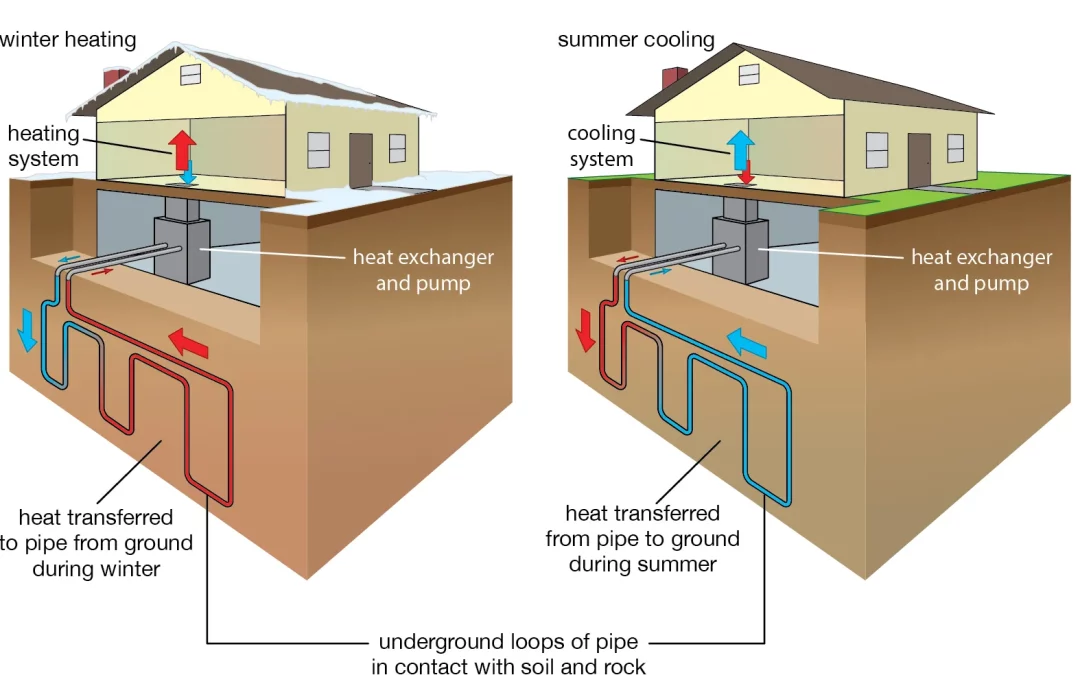Residential geothermal systems have emerged as a potential technology in the search for sustainable and energy-efficient solutions. These systems provide a renewable and environmentally responsible way to heat and cool homes by drawing energy from the planet’s inherent heat.
In this article, we’ll examine residential geothermal systems, their benefits, and potential future changes to how homes are heated and cooled.
What are Residential geothermal systems?
Ground-source heat pumps, commonly referred to as residential geothermal systems, use the Earth’s constant temperature to provide homes with heating, cooling, and even hot water. The idea is straightforward: a few feet below the Earth’s surface, regardless of the weather above ground, the temperature stays fairly consistent throughout the year. This constant temperature acts as a plentiful and sustainable source of energy that can use to control the climate within buildings.
The ground-source heat pump, which consists of a network of underground pipes called loops filled with a heat transfer fluid typically a mixture of water and antifreeze is the main part of a domestic geothermal system. These loops are buried in the earth either horizontally in trenches or vertically through boreholes. In the winter, the fluid transmits heat from the earth to the heat pump within the house. When it’s hot outside, the heat pump reverses the process and pulls heat from the inside air, and releases it into the ground.
Adavantages Of Residential Geothermal Systems
The excellent energy efficiency of residency geothermal systems is one of its main benefits. In contrast to conventional heating and cooling systems, which depend on burning fossil fuels or consume a lot of energy, geothermal systems often move heat from one location to another. According to the U.S., geothermal systems can be up to 45% more efficient than conventional HVAC systems. Environmental Protection Agency, which results in significant energy and cost savings for homes.
Residential geothermal systems also leave little of an environmental footprint. They don’t cause any greenhouse gas emissions locally and consume a lot less non-renewable energy. Homeowners can help fight climate change and reduce their carbon footprint by installing geothermal systems.
Geothermal systems’ durability and minimal maintenance needs are additional advantages. The heat pumps normally have a lifespan of 15 to 25 years, although underground loops can survive for several decades, frequently surpassing 50 years. Residential geothermal systems can provide dependable and effective heating and cooling for many years with appropriate installation and routine maintenance.
Residential geothermal systems can have a greater initial installation cost than conventional systems, but long-term energy bill reductions frequently make up for the difference. Additionally, local governments or utility providers can offer tax credits, incentives, or refunds to homeowners, further easing their financial load.
In conclusion, domestic geothermal systems offer a reasonably priced and sustainable alternative to produce hot water, heat, and cooling in homes. These systems offer significant energy savings, lower greenhouse gas emissions, and support a more sustainable future by utilizing the Earth’s natural heat.

